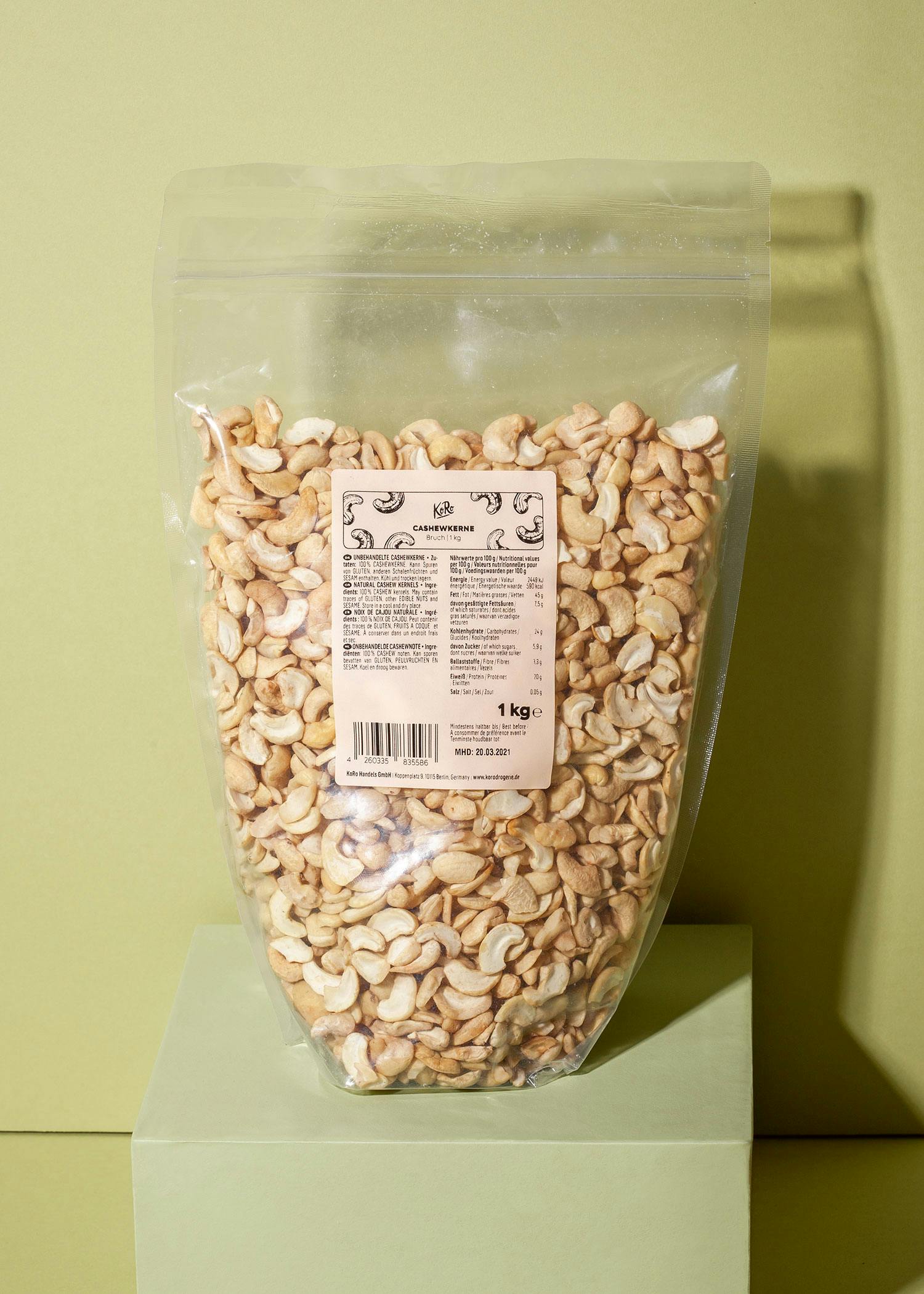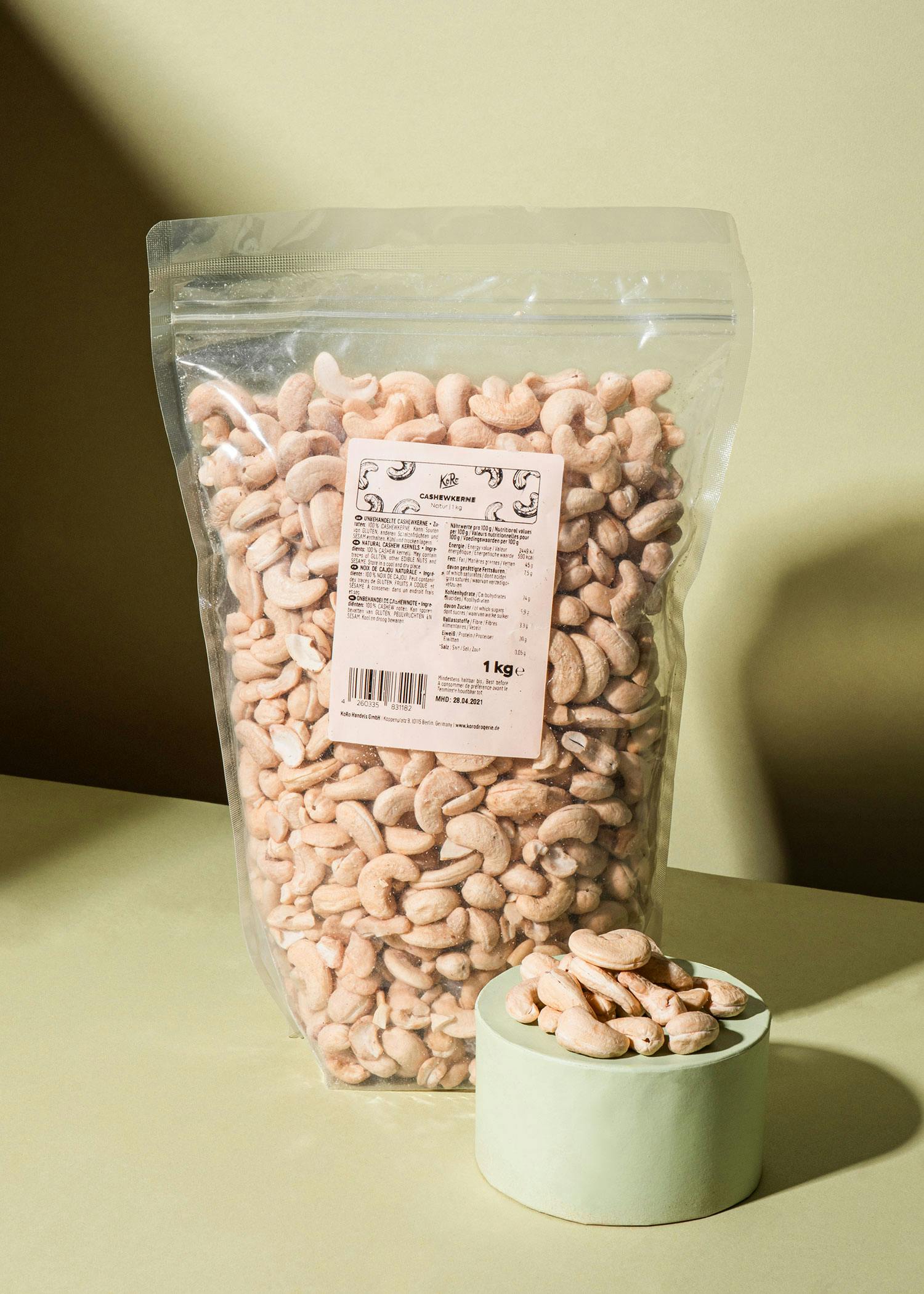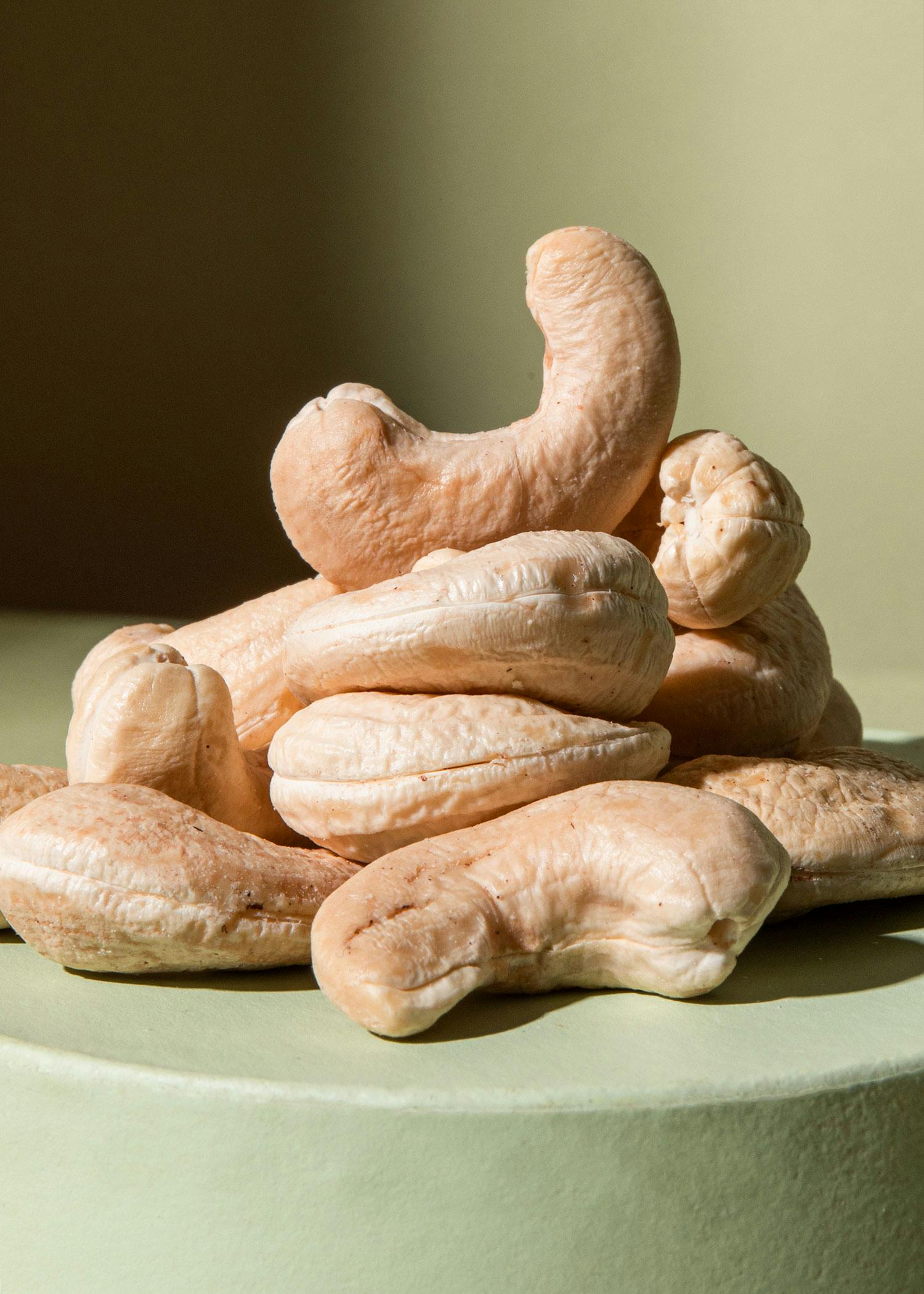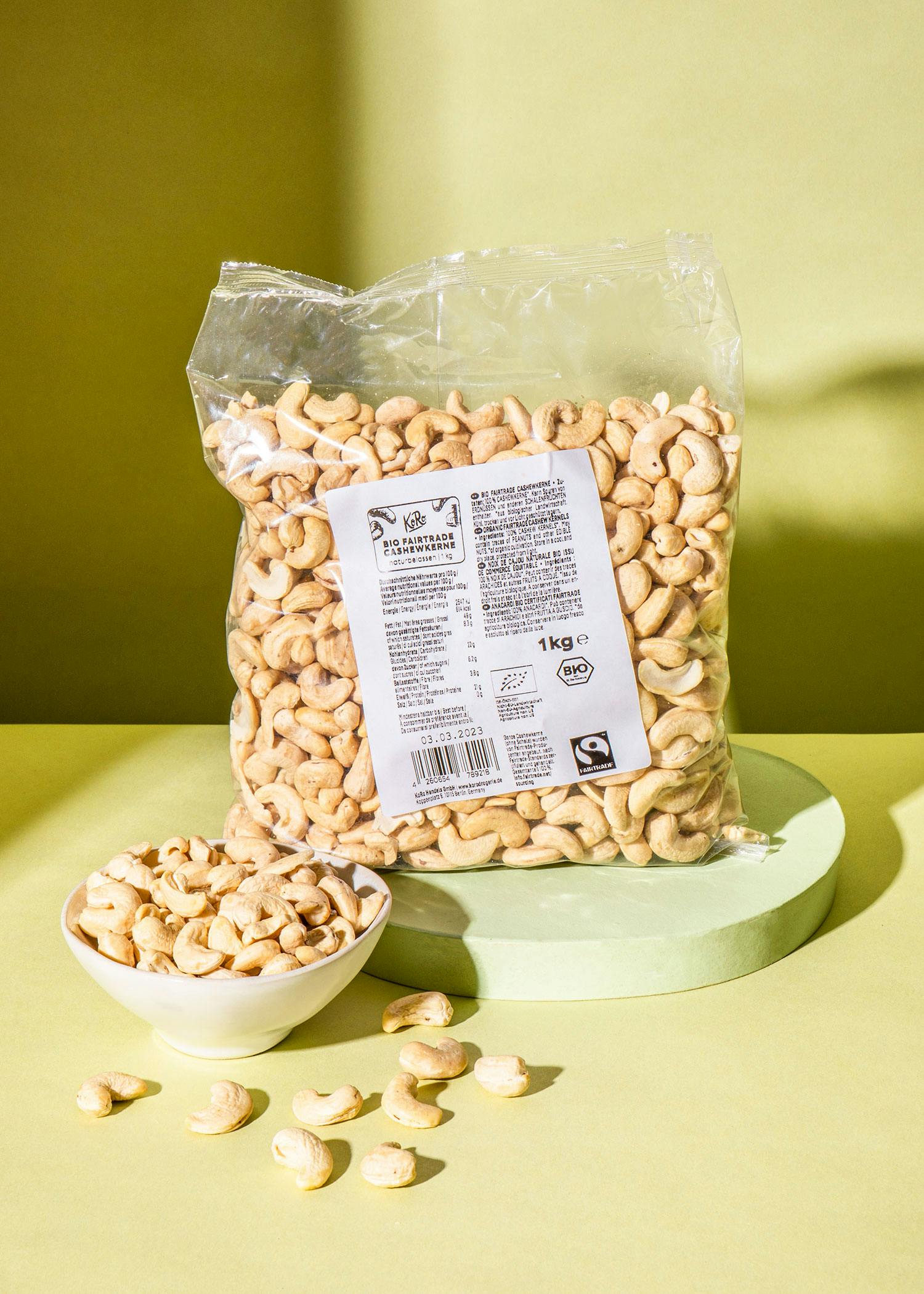Where do we source our raw cashews?
Did you know that around 90% of the world's cashews make a long detour to Vietnam or India before they reach your home? In many cases, they have already travelled almost 23,000 nautical miles*. The processing of cashews, especially the cracking, is also very time-consuming and requires a lot of manual labour. In Vietnam, the cashews can be processed at a favourable price, which is why many suppliers choose this supply chain. However, further processing is often carried out at the expense of workers' rights, particularly in Vietnam. Due to this risk and the high CO2 emissions of imports from Vietnam, we decided almost two years ago to establish a direct trade relationship with cashews producing countries in Africa and source our unprocessed cashews in bulk packs from those countries of origin. In order to establish this supply chain, we deliberately accepted a higher purchase price compared to the route via Vietnam. Since 2023 we've sourced our cashew pieces 1kg as well as the organic Fairtrade cashews 1kg and premium cashews 1kg directly in Africa. You can find the exact countries of origin on the respective product pages.
This has the following advantages:
CO
2
-emissions caused from importing the cashews has dropped by at least 50 %
The money paid for the cashews remains in the country of origin and can help develop the local economy
We work with a partner that operates its own Fairtrade-certified factory in Africa. This partner supplies all our cashews, in Fairtrade, organic and conventional qualities. This partner also visits producers in person twice a year.
Through direct contact with our partner, we know where and how our cashews are produced.
Left: Harvested in Africa, processed in Vietnam. Around 90% of the global cashew harvest takes a long detours. Right: The supply chain of KoRo's cashews in the bulk pack. Cultivation and processing take place in Africa.
You may be wondering why we didn't do this before? When we introduced cashews into our range, we sourced them from wholesalers, as did the majority of suppliers. They mainly offer cashews from Vietnam and India. By analysing the risks of these countries of origin and considering the long detours that our cashews take, we decided to change the supply chain for our unprocessed cashews. The demand for these products is very constant and allows us to accept a higher purchase price. KoRo is slowly reaching the appropriate company size to invest time and resources in establishing even more direct supply chains. Nevertheless, the following always applies to all our products: we make certain demands on the suppliers before we start working together. We check whether they and their upstream suppliers meet the minimum labour standards and core labour standards of the ILO (International Labour Organisation).
You can find more information about our supply chains here.
Can KoRo guarantee fair working conditions at every step of the cashew supply chain, and if so, how?
First of all: Fair labour conditions in supply chains are non-negotiable for KoRo. We require all our suppliers and their upstream suppliers to comply with the ILO core labour standards.
Our partner for all the above-mentioned unprocessed cashews has confirmed compliance with ILO labour conditions for its own production, partner factories and cooperatives. According to our internal risk analysis, this partner has a high level of credibility thanks to its Fairtrade certification, years of experience with the cultivation and processing of cashews and regular visits to partner factories and cooperatives. As a company that does not produce itself and works with suppliers, we rely on their truthful answers to enquiries about working conditions at the respective harvesting and production sites and/or audits and certifications by third parties (such as Fairtrade).
For our organic Fairtrade cashews, we work with the same partner that supplies us with conventional products. The FLOCERT certification organisation carries out audits to monitor certain ‘fair’ working conditions on site. In other words, it checks whether producers and traders comply with the Fairtrade standards and fulfil the social, economic and ecological standards. It also checks whether the producer organisations are paid the set minimum price and the Fairtrade premium. FLOCERT is an independent certification organisation and subsidiary of Fairtrade International**.
Our aim for the future is to increase the proportion of products with sustainability certification, such as Fairtrade, in our range, as we can ensure even greater compliance with standards by having them checked by independent third parties.
As we are aware of the risks in some supply chains, we are currently developing an expanded Supplier Code of Conduct, which is aimed at suppliers and partners. In it, we define our standards and expectations regarding the environment, business ethics and social issues even more clearly than before. Of course, this also includes compliance with human and labour rights.
Read more about sustainability at KoRo here.
*https://www.zdf.de/dokumentation/planet-e/planet-e-cashew--co-100.html
** https://www.fairtrade-deutschland.de/was-ist-fairtrade/zertifizierung-und-kontrolle






